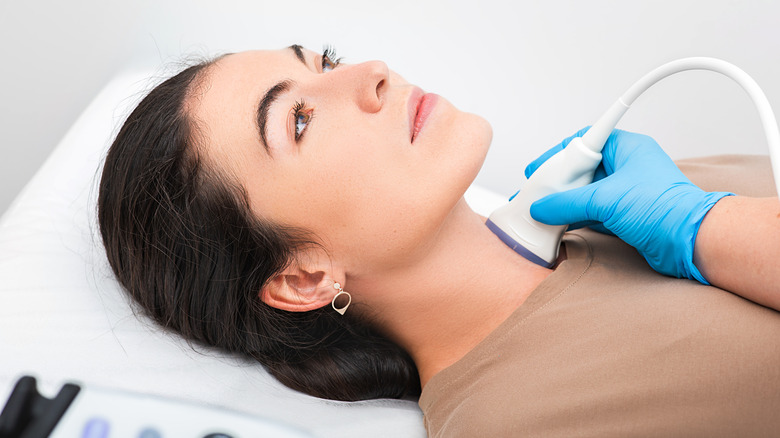The Mayo Clinic describes Graves’ disease as an immune system disorder that causes thyroid hormones to be produced in excessive amounts, leading to a condition called hyperthyroidism. Anyone can have Graves’ disease, but it is most common in people under the age of 40 and women.
Normally, the immune system produces antibodies in response to a perceived invader, such as a virus or bacterium. However, in Graves’ disease, the immune system mistakenly identifies a person’s own thyroid tissue as an invader, causing it to attack the thyroid gland. According to the Mayo Clinic, the antibody produced behaves similarly to the regulatory pituitary hormone. This leads to an overproduction of thyroid hormones.
Graves’ disease can cause several different hyperthyroidism symptoms, including weight loss, rapid or irregular heartbeat, nervousness, irritability, insomnia, tiredness, shakiness, muscle weakness, sweating, heat intolerance, frequent bowel movements, and goiter, according to the National Institute of Diabetes and Digestive and Kidney Diseases (NIDDK). It can also cause an eye disease called Graves’ ophthalmopathy, as well as reddish and thick skin.
Depression is unexpected symptom of Graves’ disease

One symptom that may be surprising, however, is depression. Depression is described by the American Psychiatric Association as a medical disorder that can cause feelings of sadness or loss of interest in things once enjoyed. People with depression may also have other symptoms like changes in appetite, problems with sleep, loss of energy, changes in activity, feelings of guilt or worthlessness, difficulty with thinking, or thoughts of suicide.
Verywell Health explains that Graves’ disease and depression are linked because thyroid hormones help regulate serotonin and norepinephrine. When these two are in short supply, it can lead to depression. Cortisol is also high in people with depression, which can affect the function of the thyroid gland.
They state that the primary concern when you have Graves’ disease and depression is suicide. The article cites a 2024 study dealing with children between the ages of 10 and 18 which found that those with hyperthyroidism were about five times more likely to consider or attempt suicide. Moreover, a 2024 study discovered a small increased risk for suicide in people with Graves’ disease, along with a significantly increased risk in people who also had Graves’ ophthalmopathy. Fortunately, therapy, support groups, lifestyle changes, and medication can help alleviate symptoms of depression.
If you or anyone you know is having suicidal thoughts, please call the National Suicide Prevention Lifeline at 1-800-273-TALK (8255).




